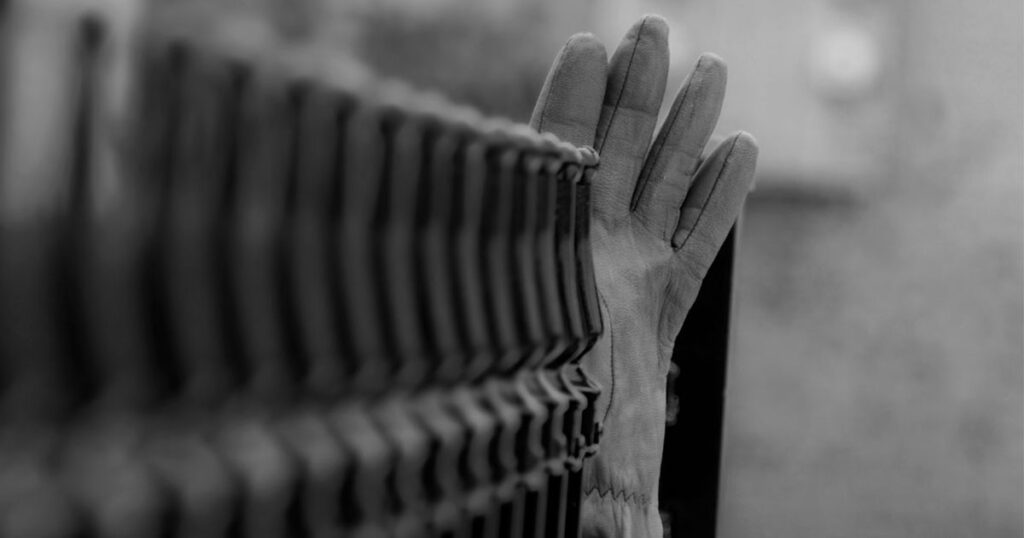
On a Saturday in April, out doing my weekly errands, I stopped for some cash at the automatic teller, but the machine wouldn’t take my credit card. I’d had the same trouble at another machine the week before, and yet I’d just charged my groceries on the card, so something about it was working, as I told the young man who came up while I was still attempting to insert the card into the slot. He stood at a safe distance, wallet in hand, wearing, like me, neither mask nor gloves, though he held a pair of cloth gloves that might have been for cycling, and I wondered if he’d come on a bike. I gave up and stepped away, and he took my spot. I waited to see if the machine would function for him, and on his second attempt, his card slid in. “Oh, you had to push,” I said, and he nodded. “A little bit.”
The guy was in his late 20s or early 30s, wearing shorts on that gray morning, but also a jacket. He had short curly hair and a long, flat face. When he finished his transaction, we traded places again, and I put my card to the slot, but still no success. I pushed, but no. I turned back to him, and he asked, “Would you like me to try?”
Had the same situation occurred two months earlier, his tone would have been different, not so solemn, not so circumspect, not so diffident. He spoke as if the proposal were a dangerous, risky move, or an intimate one. He spoke as a doctor might: Would you like me to excise that mole from your inner arm? Or a trainer: Would you like a massage of your gluteus maximus? Or a waiter: May I remove your dirty plate? Any of those services the professional does—it’s their job. A kind stranger might too, but he’d check first, and it wouldn’t be just a matter of form.
“Yes, please,” I said, and held out my card. He nodded, carefully pulled on his gloves—had he used them when doing his transaction at the machine a moment earlier? I hadn’t noticed—and then took my card. But he had no more luck than I, and after a few attempts, he shrugged. I shrugged too, and he handed the card back. I told him thanks.
“I didn’t do anything,” he said.
But he had, with his soft gloves and his calm. His gloves were black, but he’d given me the white-glove treatment. He’d been neighborly, and made it look simple. He hadn’t looked guilty and he hadn’t looked suspicious, frightened, or squeamish, as lately people had seemed to, sometimes excessively shy, sometimes like caged animals within their two-meter spaces, ready to back away or snarl at an intrusion. People even avoided looking at one another, as if the virus passed through eye contact too.
These months of distancing have also been full of shared jokes and messages, commiseration at the difficulties, shared sorrow for some, but how many people take your card, hold it in their hand, and despite their gloves do so with just the right touch of ceremony? The gloves didn’t suggest I’m afraid of you or You should be wary of me but simply, Let’s take a moment, let’s do this right. What could be better? Why, just this: That he then returned the card with the same ceremony, and looked me in the eye as we parted.


